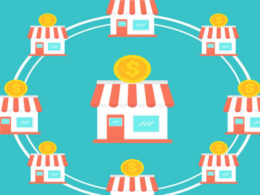Trends in technology always make their way to small businesses, and Software as a Service (SaaS) applications are no exception. Owners and operators worldwide are weaning themselves from the traditional “boxed” software found in retail outlets and electronics stores and are instead turning to the Web for these essential programs. Software solutions for accounting, human resources, marketing, sales and other tasks are now as accessible as any Web page, making them available to anyone with an Internet connection. And they’re typically more robust than their “boxed” brethren.
However, just like many things in life, not all SaaS applications are created equally. Many SaaS programs selected by businesses will play a crucial role in their operations, and it’s imperative that owners, operators and staff do their homework beforehand to ensure the applications selected are the appropriate fit for their specific operations, are proven and dependable, and will not create problems down the road.
Here are a few tips to consider when selecting a SaaS program for your business:
Security
This is undoubtedly the most important consideration, given the transfer and flow of private information such as names, addresses, social security numbers and credit card numbers across the Internet. Regardless of the tasks the SaaS software will be used for—internal accounting, appointment-scheduling, processing sales transactions—it’s in your business’ and customers’ best interest to check the security credentials of the SaaS provider you’re considering before signing on the dotted line. Inquire on the provider’s standard security practices, its server database, data storage and back-up procedures, and procedures related to failover and federal regulations, if applicable. Be wary of services that do not provide an address or are based in foreign country, as they may not have the same security standards as domestic providers and you may have little or no recourse should something go awry.
Cost
Familiar with the clichés, “There’s no such thing as a free lunch” and “You get what you pay for”? Heed this advice when selecting a SaaS provider. There are plenty of free or very low-cost SaaS applications out there, but most simply do not offer the functionality small businesses are looking for. And the last thing you need is to integrate such software, only to find out later its shortcomings. On the other end of the spectrum, SaaS programs should not break the bank. Affordability is a main selling point of SaaS technology, and most providers offer a “pay-as-you-go” platform with affordable monthly payments. Unless you’re comfortable doing so, avoid any SaaS applications that require long-term contracts.
Support
This is an area often lacking in many SaaS programs. Yet, it can be one of the most vital, especially for owners and staff who are not tech-savvy. Getting left in the dark once you sign up and purchase a product and service is all too common in today’s Internet world, and it can have a serious impact on your operations. Check to see if the SaaS provider offers some type of live support (both phone and e-mail are ideal), as well as provides training on setting up the application to your specific needs. Additionally, a reputable SaaS provider will also conduct routine upgrades and updates to the system to ensure the service is top-rate.
Dependability & Credibility
Any company or service can claim it’s the best and the perfect solution to all your needs. And that’s all that is, a claim. They need to show it with real-life examples of businesses like yours that successfully utilize the service. Ask for a list of their current clients, especially those in your specific field. Contact a few of them to get a feel of the dependability of the software, how easy it is to use, how their staff and customers like it, how it’s improved their operations, any issues or “red flags” you should be aware of, and other questions you may have that might impact your decision to select the service. Another indicator is the length of time the service has been in business. “Fly-by-night” operations typically don’t last long, and being in business for five or more years is a good sign that the provider is offering a valuable service.
Selecting SaaS software for your business is a big decision, and one that should not be taken lightly. A little research goes a long way in finding the right program that will improve your operating processes and procedures.






